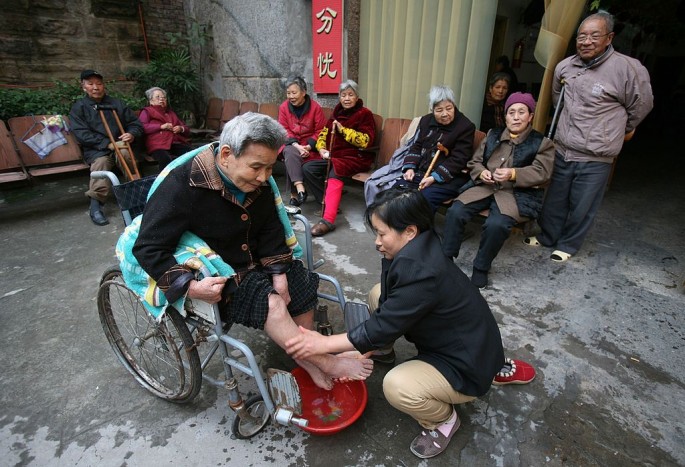A growing number of senior citizens from foreign countries are going to nursing homes in China to look for long-term healthcare, making the country an ideal destination for elderly to spend their twilight years, the Global Times reported.
Sergei Shcherbinin, an 80-year old Russian, who has been spending three months in the summer every year to do qigong training at Hebei Medical Qigong Hospital. The institution, based in Beidaihe, combines caring for the elderly with traditional Chinese medical treatment and qigong (Chinese breathing exercise). Shcherbinin has been doing it annually for 15 years.
Instead of spending his recent 80th birthday, Shcherbinin chose to spend it with the hospital staff.
"I am deeply attracted to this place where I can be healthier and happier through exercises," Shcherbinin said. "My kids had called to ask me to come home for my 80th birthday, but I insisted on celebrating it here with the staff members, most of whom have become my good friends."
Shcherbinin used to suffer from arthritis, relying only on wheelchairs and crutches to move around. But now he no longer needs any of them.
Many foreign senior citizens, like Shcherbinin, benefit from the nursing homes' holistic approach in caring for the elderly.
Sylvie Faity, a Frenchwoman in her 50s, recently underwent breast cancer treatment and is also suffering from scoliosis. She went to China for treatment.
Through daily exercises, Faity started to show signs of recovery. "My arthritis has been relieved; my body has become softer, and my spine has become more agile," she said.
Xiao Yuande, the director of the qigong department at the nursing home, said that hundreds of foreign senior citizens have visited the nursing home over the years. Xiao cited a group of Japanese seniors who have been regularly visiting the facility for 26 years now.
Zhang Ping (not her real name), the operations manager at a nursing home in Beijing, said that the increased acceptance of Chinese culture, healthcare, and medical practices abroad are the main reasons for the growing interest in China's nursing homes.
But for Emily Wang, a 65-year-old Chinese-American graphic designer from New York, it was for good service at less the cost that she chose a nursing home in Beijing.
Wang said that public nursing homes in New York are not affordable and it takes long to get a room, even in a private care, which is also expensive.
She returned to Beijing and stayed in a state-owned nursing homes closed to their home.
"Although the nursing homes are relatively high-end, with monthly expense ranging from 5,000 yuan ($754) to 10,000 yuan, they are still more affordable than their Western counterparts," Zhang said.
"In the U.S., senior citizens ordinarily need to pay $4,000 per month for their nursing care. In the U.K., they usually have to pay around $2,600 a month," Zhang added. "Therefore, many foreign seniors who are in a lower income bracket and are interested in Chinese culture tend to choose nursing homes in China."



























